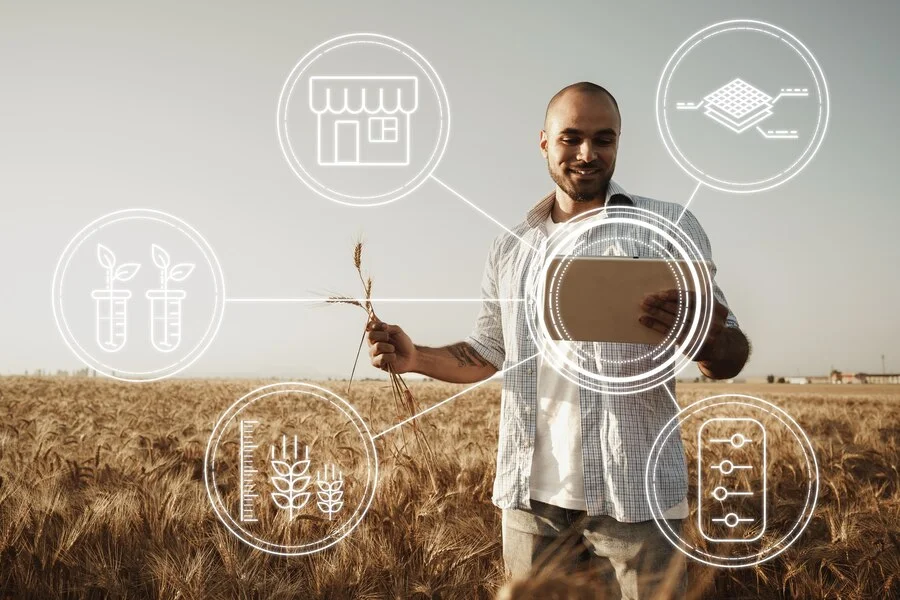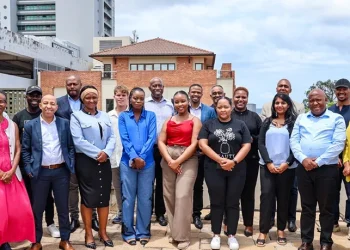As Africa faces pressing challenges in food production and supply, technology startups across the continent are stepping up to transform agriculture through innovative solutions. Utilizing advanced technologies such as artificial intelligence (AI) and the Internet of Things (IoT), these startups are pioneering methods to enhance crop yields, streamline farm operations, and ultimately secure food supplies for one of the fastest-growing populations globally. This article delves into the remarkable strides being made in agritech, spotlighting the companies at the forefront of this agricultural revolution.
Advancements in AI for Precision Farming
African agritech startups are increasingly turning to AI to bring precision farming to local and commercial farmers. Precision farming uses AI to analyze data from various sources like weather conditions, soil quality, crop maturity, and even pest infestations to make informed decisions that maximize crop yields and reduce resource waste.
Example: UjuziKilimo in Kenya is using AI to analyze soil samples from smallholder farms to provide personalised recommendations on fertilisers, seeds, and optimal planting techniques. Their solution helps farmers make data-driven decisions that enhance productivity and sustainability.
IoT Devices for Real-Time Monitoring
IoT technology is being deployed to monitor crop and livestock conditions in real-time, enabling farmers to react swiftly to any changes required in their management practices. These IoT devices can monitor soil moisture levels, crop health, and even livestock health indicators, sending real-time data to farmers’ smartphones or computers.
Example: Hello Tractor is an innovative startup that combines IoT with a sharing economy model. It allows farmers to book affordable tractor services, while IoT devices attached to these tractors track usage and gather data on soil health and planting patterns, which is then used to aid other farmers in the network with their crop management.
Drone Technology for Enhanced Crop Surveillance
Drones are being used to transform the way farmers survey their lands. They can cover large areas quickly, providing detailed insights that would be time-consuming and costly to gather through traditional means. Drones can be equipped with imaging technology to provide high-resolution images that help in identifying pest attacks, nutrient deficiencies, and other issues that could affect the health of crops.
Example: Aerobotics from South Africa uses drone technology combined with AI to provide farmers with detailed insights about their crops’ health. Their technology can detect early signs of disease and nutrient deficiencies, allowing for timely intervention to protect crops.
Blockchain for Traceability and Transparency
Blockchain technology is being applied to ensure the traceability of agricultural products from the farm to the consumer’s table. This transparency helps in building trust between consumers and suppliers and ensures compliance with food safety regulations.
Example: AgriChain supports agricultural businesses globally but has a significant presence in Africa, where it helps connect smallholder farmers directly with buyers, reducing the middlemen and enhancing farmers’ incomes. It uses blockchain to provide a secure and transparent record of transactions, ensuring traceability and reducing chances of fraud.
Empowering a Continent
The integration of AI, IoT, drones, and blockchain technologies by African tech startups is not just revolutionizing farming practices but is also significantly impacting food security on the continent. These technologies enable smarter, more efficient farming methods that increase productivity, reduce waste, and provide sustainable solutions to food production challenges. As these innovations continue to evolve, they hold the promise of transforming African agriculture into a more productive, sustainable, and secure industry, crucial for the continent’s future economic stability and growth.














